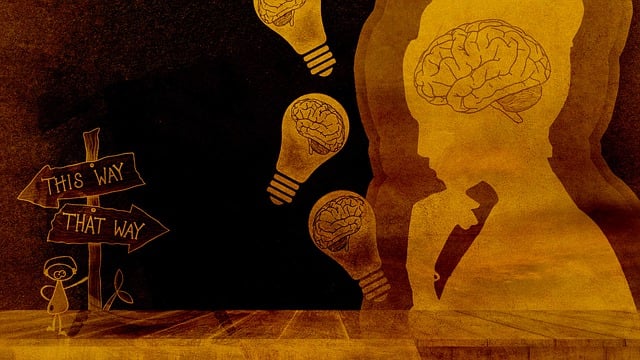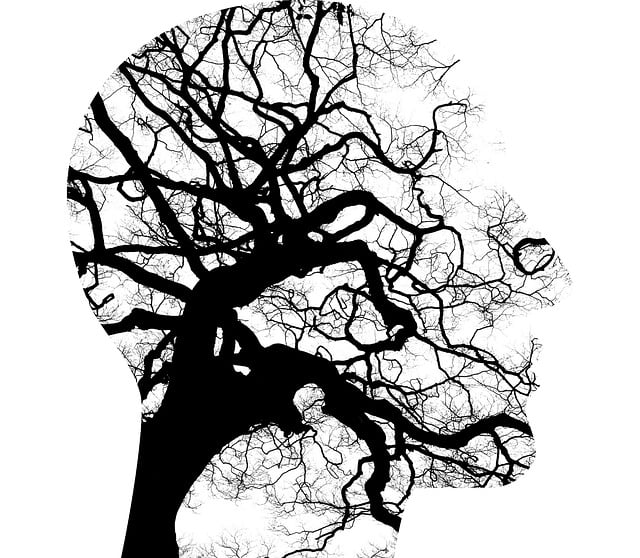Centennial Mindfulness Therapy is revolutionizing mental health support by addressing historical stigma and promoting education, awareness, and self-care. They advocate for an inclusive society where mental illness is normalized and viewed as a common human experience. Through mindfulness meditation, community dialogues, workshops, and peer groups, they empower individuals to take proactive steps towards emotional resilience, reduce stress, and encourage early help-seeking behaviors. Their collaborative strategies aim to foster systemic change, prioritizing mental wellness for all.
Mental illness stigma remains a pervasive barrier to treatment and well-being. This article explores three-pronged approach to reduce this harmful societal construct. We begin by examining the historical roots and far-reaching impact of mental health stigma. Next, we introduce Centennial Mindfulness Therapy as an innovative practice that combines education with mindfulness techniques to foster understanding and empathy. Finally, we delve into community engagement and advocacy strategies for fostering lasting change. Through these interconnected efforts, we can create a more accepting society where individuals with mental illness feel supported rather than shamed.
- Understanding the Stigma of Mental Illness: Historical Perspective and Impact
- Centennial Mindfulness Therapy: A Approach to Countering Stigma Through Education and Practice
- Community Engagement and Advocacy: Strategies for Lasting Change in Reducing Mental Illness Stigma
Understanding the Stigma of Mental Illness: Historical Perspective and Impact

The stigma surrounding mental illness is a complex issue deeply rooted in history. Historically, mental health conditions have often been misunderstood and stigmatized, leading to marginalization and discrimination. People with psychological disorders were frequently treated as outcasts, confined to asylums, or even subjected to harmful practices like shock therapy. This historical context has shaped societal perceptions, fostering an environment where individuals facing mental health challenges feel ashamed and afraid to seek help. As a result, many struggle in silence, hindering their ability to access the support and treatment they need.
Centennial Mindfulness Therapy advocates for a shift in this narrative by promoting Mental Health Awareness and emphasizing Self-Care Practices. Through education and open dialogue, we can foster Emotional Intelligence, encouraging empathy and understanding. By recognizing the impact of historical stigma, we can create a more inclusive society where mental illness is viewed as a common human experience, similar to physical ailments, deserving of compassion and support rather than judgment and ostracization.
Centennial Mindfulness Therapy: A Approach to Countering Stigma Through Education and Practice

Centennial Mindfulness Therapy offers a novel approach to combating mental illness stigma through education and practice. By focusing on cultivating awareness and presence in the moment, this therapeutic method empowers individuals to develop emotional resilience and reduce symptoms associated with stress and anxiety—often considered precursors to burnout prevention. Through regular mindfulness meditation sessions, participants learn to recognize and manage their emotional responses, fostering a deeper understanding of mental health and breaking down societal barriers.
The therapy emphasizes the interconnectedness of mental, physical, and spiritual well-being, promoting techniques that enhance overall emotional well-being. By demystifying mental illness and normalizing conversations around it, Centennial Mindfulness Therapy aims to create a supportive environment where individuals feel comfortable seeking help early on. This proactive approach not only helps in stigma reduction but also empowers people to lead more balanced and fulfilling lives.
Community Engagement and Advocacy: Strategies for Lasting Change in Reducing Mental Illness Stigma

Community engagement plays a pivotal role in sustained efforts to reduce mental illness stigma. By fostering open dialogues and educational initiatives within local communities, Centennial Mindfulness Therapy leads the way in promoting understanding and empathy. This involves hosting workshops, seminars, and peer support groups that demystify mental health challenges, empowering individuals to recognize signs of distress early on. Such community-driven approaches encourage everyone from healthcare professionals to everyday citizens to actively participate in breaking down barriers associated with seeking help.
Advocacy is another powerful tool in the stigma reduction arsenal. Mental wellness journaling exercises and guidance programs can equip individuals with coping skills development, enabling them to share their journeys transparently. Additionally, risk management planning for mental health professionals ensures that practitioners are equipped to handle crises while minimizing potential triggers, fostering a supportive environment where help-seeking is normalized. Through these collaborative strategies, Centennial Mindfulness Therapy drives systemic change, paving the way for a more inclusive and compassionate society that prioritizes mental wellness for all.
In navigating the intricate landscape of mental illness stigma, we’ve explored historical perspectives that have shaped public perception and examined innovative strategies like Centennial Mindfulness Therapy. By fostering education, advocating for community engagement, and implementing lasting change, we can create a more inclusive society that reduces stigma and enhances support for those facing mental health challenges. Through collective efforts, we can revolutionize the way we address mental illness, ensuring folks receive the understanding and care they deserve.










